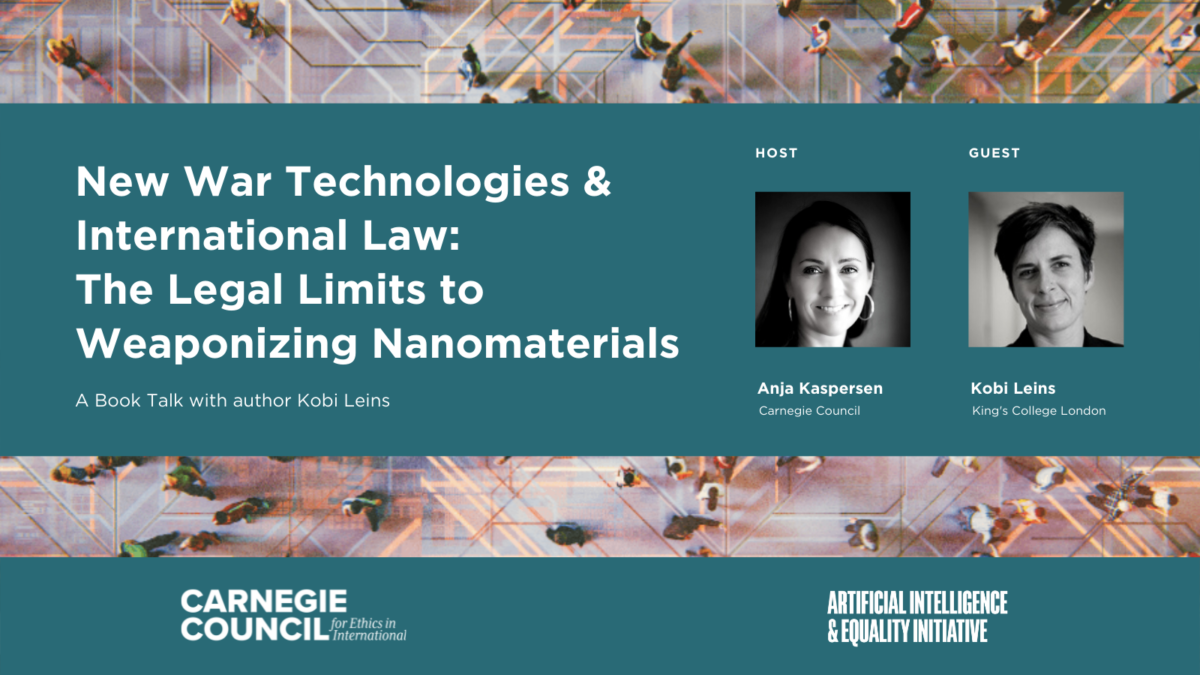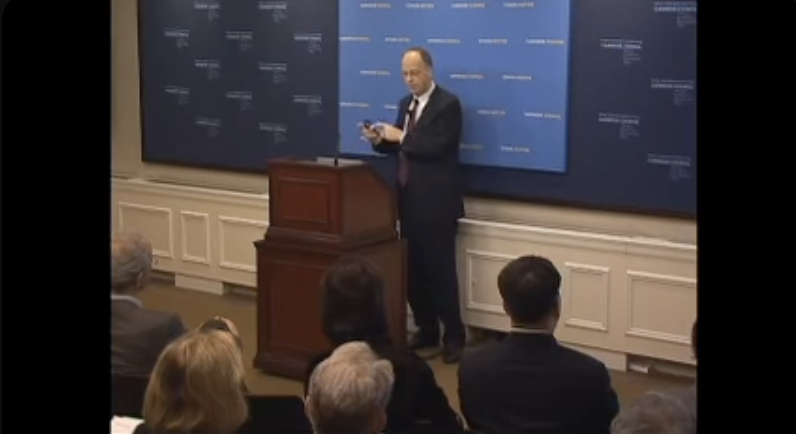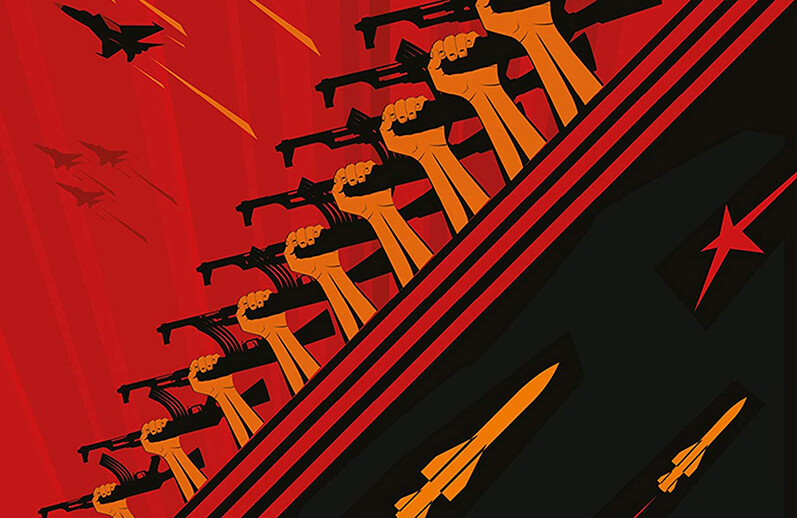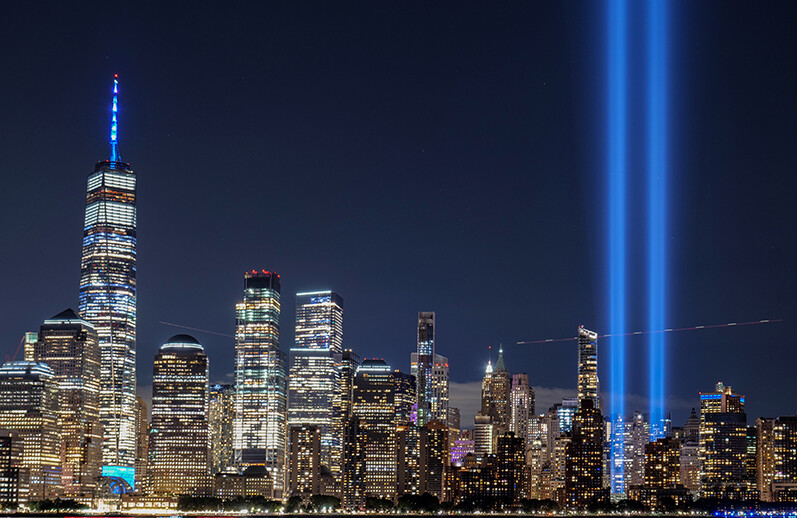Ward Wilson: Rethinking Nuclear Weapons
Recorded on January 16, 2013
In a 2013 event at Carnegie Council, Ward Wilson, now the executive director at Realist Revolt, says that the Soviet declaration of war and not the Hiroshima nuclear bombing caused Japan to surrender at the end of World War II. An audience member then posits that the Soviets declared war because of Hiroshima.
Click here for the full transcript and audio from this talk.
Nuclear weapons shocked Japan into surrendering at the end of World War II—except they didn’t. Japan surrendered because the Soviet Union entered the war. Japanese leaders said the bomb forced them to surrender because it was less embarrassing to say they had been defeated by a miracle weapon. Americans wanted to believe it, and the myth of nuclear weapons was born.
Look at the facts. The United States bombed 68 cities in the summer of 1945. If you graph the number of people killed in all 68 of those attacks, you imagine that Hiroshima is off the charts, because that’s the way it’s usually presented. In fact, Hiroshima is second. Tokyo, a conventional attack, is first in the number killed. If you graph the number of square miles destroyed, Hiroshima is sixth. If you graph the percentage of the city destroyed, Hiroshima is 17th.
Clearly, in terms of the end result—I’m not talking about the means, but in terms of the outcome of the attack—Hiroshima was not exceptional. It was not outside the parameters of attacks that had been going on all summer long. Hiroshima was not militarily decisive.
The Soviet Union’s declaration of war, on the other hand, fundamentally altered the strategic situation. Adding another great power to the war created insoluble military problems for Japan’s leaders. It might be possible to fight against one great power attacking from one direction, but anyone could see that Japan couldn’t defend against two great powers attacking from two different directions at once.
The Soviet declaration of war was decisive; Hiroshima was not.
After Hiroshima, soldiers were still dug in in the beaches. They were still ready to fight. They wanted to fight. There was one fewer city behind them, but they had been losing cities all summer long, at the rate of one every other day, on average. Hiroshima was not a decisive military event. The Soviet entry into the war was.
And they said this. Japan’s leaders identified the Soviet Union as the strategically decisive factor. In a meeting of the Supreme Council in June to discuss the war in general, policy, they said Soviet entry would determine the fate of the empire. Kawabe Toroshiro said, "The absolute maintenance of peace in our relations with the Soviet Union is one of the fundamental conditions for continuing the war."
Japan’s leaders said Hiroshima forced them to surrender because it made a terrific explanation for losing the war. But the facts show that Hiroshima did not force Japan to surrender.
If nuclear weapons are a religion, Hiroshima is the first miracle. What do we make of a religion when its miracles turn out to be false? Nuclear weapons shocked Japan into surrendering in World War II—except they didn’t.
Transcript of the entire lecture
This talk was based on a discussion of Five Myths About Nuclear Weapons.
Subscribe to the Carnegie Ethics Newsletter for more on ethics and international affairs
Resources on Nuclear Ethics & Militarization
DEC 15, 2021 • Podcast
Is Militarization Essential for Security in 2022 and Beyond?
JUL 28, 2022 • Podcast
The Doorstep: What is the Real Threat of Nuclear War? with Dr. Gary Samore
Brandeis University's Professor Gary Samore, joins Doorstep co-hosts Nick Gvosdev and Tatiana Serafin to discuss how nuclear deterrence fosters restraint and caution, and the hope ...
SEP 9, 2021 • Podcast
Twenty Years Since 9/11: Grey Wars, American Values, & the Future of National Security
In the 20 years since the 9/11 attacks, national security decisions have tested the values of American democracy. This panel, hosted by Carnegie Council President Joel Rosenthal, ...

Nanoscale Materials & Current Arms Control Regimes
Carnegie Council continues to publish resources focused on the intersection of emerging technology and international conflict.
How can policymakers make responsible choices about the use of nanomaterials in war?



